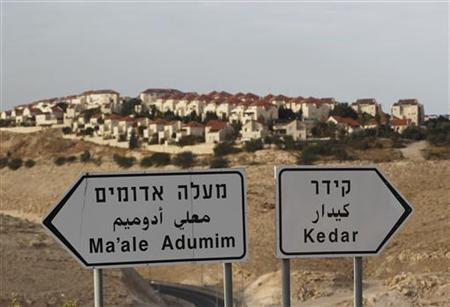IN THE MEDIA
Settlements are not the great obstacle to Mid-East peace
December 20, 2012 | Colin Rubenstein

Colin Rubenstein
The Australian – December 20, 2012
CLAIMS that Israeli settlement building has made a two-state outcome impossible are completely untrue. Settlements are only one of many contentious issues that must be addressed – along with water, Jerusalem, refugees and security arrangements – and far from the most difficult to resolve.
Israeli policies since 2004 – after the George W. Bush-Ariel Sharon agreement – have prevented any new settlements or the expansion of the boundaries of existing settlements. Israeli Prime Minister Benjamin Netanyahu’s recent announcements are consistent with those policies.
It is also not true that any current or likely future settlement growth will substantially affect the size, contiguity or viability of a future Palestinian state. Settlements currently take up less than 2 per cent of the West Bank.
Further, the broad outline of how to resolve the settlement issue in a final peace deal has been largely agreed in past Israeli-Palestinian negotiations: Israel will retain major settlement blocs, containing a large majority of settlers, in exchange for land swaps of territory inside Israel’s pre-1967 borders and evacuate the rest. Israel has demonstrated it has the will and ability to do this – evacuating some West Bank and all Gaza settlements in 2005. Palestinian negotiators have accepted this idea in principle.
While one may question the timing or wisdom of Netanyahu’s recent decision to allow planning to move forward for more Jewish housing in east Jerusalem and the area known as E1 in the Jerusalem suburb of Ma’ale Adumim – as even many Israelis do – the proposition that they make a two-state outcome impossible is ludicrous.
Claims that construction in E1 would cut the West Bank in half or cut off the West Bank from Jerusalem are demonstrably incorrect and the New York Times recently ran corrections of these false claims in its pages.
Former US deputy national security adviser Elliott Abrams, who oversaw much of the negotiations between Israel and the Palestinian Authority, recently noted on the ABC: “I just don’t think [developing E1] makes [the two-state plan] unviable. [former Israeli prime ministers] Rabin and Barak both planned to build in E1. The Clinton parameter, the Olmert plan, all assumed that E1 would be part of Israel in its final settlement.”
As for claims about recent settler violence, the Israeli government has strengthened law enforcement to crack down on such illegal acts against Palestinians perpetrated by a tiny minority of settlers. This has been met with praise by the vast majority of settlers who seek a peaceful resolution with the Palestinians.
The media often reports that Israeli settlements are “illegal under international law”, but this charge has been disputed by many international law experts, including former International Court of Justice President Judge Stephen M. Schwebel, and Australia’s most renowned expert on international law, the late Julius Stone.
The focus on settlements has caused most observers to lose sight of the real obstacles to peace. Following the war Hamas provoked in November by launching hundreds of rockets into Israel, Hamas leader Khaled Meshaal repeated in Gaza his group’s vow to destroy Israel, and to rely solely on violent “resistance” to liberate the area “from the (Mediterranean) sea to the (Jordan) river.” The deafening silence in response, including in Canberra and the failure to haul in Palestinian diplomats was revealing.
The Palestinian leadership is bitterly split between Hamas, ruling Gaza, and Fatah ruling the West Bank. If Israel tries to reach a peace deal solely with Fatah, Hamas will likely sabotage it.
Instead of rejecting Meshaal’s incitement to violence, Palestinian Authority officials are rewarding Hamas with gestures of ever-closer ties. This is no surprise – the Palestinian Authority is culpable of relentless anti-Israel incitement in its government-run media and schools. Add the continued rejectionism of elements of the PLO; corruption and misuse of international aid and overdue elections, and it is clear that tough questions about advancing peace must be asked in Ramallah as well as Jerusalem.
The greatest barrier to peace is that the Palestinians are exploiting settlements as a pretext to refuse to negotiate. The Netanyahu government met their demands with an unprecedented 10-month freeze on building in settlements in 2009-2010, but this failed to bring the Palestinians back to substantive peace talks.
Given this, the disproportionate criticism of Israel’s settlements is deeply counterproductive. Punishing Israel is a signal to Ramallah that it can secure political gains without having to negotiate – they can gain a state, either through Fatah’s campaign of diplomatic delegitimisation, or Hamas’s rockets and terrorism. Simultaneously, this sends a message to Jerusalem that the Palestinians will not be held accountable for violating their written commitments, as they did with their recent UN bid.
The chances for peace will increase only when the incentives for the Palestinians to avoid negotiating with Israel decrease.
Rather than pressure Israel to make unilateral concessions on settlements that will only invite more unilateral demands, Australia should stress to PA President Mahmoud Abbas that the only way to resolve the settlement issue, like others, is through direct negotiations, without preconditions, with Israel.
Colin Rubenstein is executive director of the Australia/Israel & Jewish Affairs Council.
Tags: Israel





